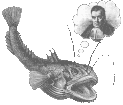UW Aquatic & Fishery Sciences Quantitative Seminar
Cole Monnahan
Quantitative Ecology & Resource Management, University of Washington
Advantages of gradient-based MCMC algorithms for difficult-to-fit Bayesian models in fisheries and ecology
Abstract
Bayesian inference is widely used in ecology and fisheries, typically using MCMC and a generic and flexible platform like JAGS. However, for certain models, the inefficiency of commonly used algorithms (Gibbs and Metropolis) can be a major obstacle to an analysis. However, any software platforms capable of automatic derivatives provide the opportunity to efficiently apply a new class of MCMC algorithms which utilize the properties of a dynamical system from physics, known as a Hamiltonian system. These gradient-based samplers promise improved efficiency over traditional samplers, particularly in high dimensions, but require more technical expertise to implement and are difficult to understand. In this seminar I will introduce the underlying theory of these samplers, aiming to provide an improved intuition of how and why they work. I will then contrast the traditional methods using simple models with two gradient-based algorithms: Hamiltonian Monte Carlo and the No-U-Turn sampler. These samplers are available, in some form, across a number of software platforms utilized by quantitative ecologists, namely Stan, ADMB, and TMB. The performance of these algorithms will be also be compared on larger, more complex models to further explore their utility. Lastly, I will conclude with a discussion on the new developments to this class of samplers, and practical advice on software which implements them.

